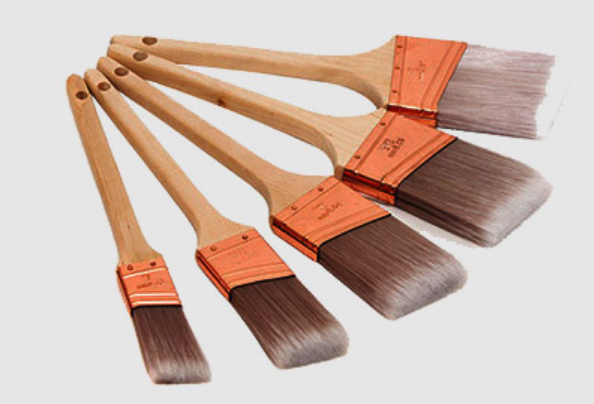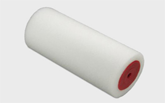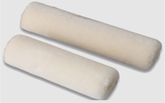Natural Brushes or Synthetic Paint Brush: What's the Difference?
Oct. 21, 2024What Are Synthetic Brushes?
Synthetic brushes are made from man-made materials, such as nylon, polyester, or a blend of both. These materials have been engineered to mimic the properties of natural bristles.
Synthetic Paint Brushes: Versatile and Budget-Friendly
- Made of nylon or polyester, synthetic brushes aim to replicate the properties of natural brushes without the need for delicate care.
- They are suitable for acrylics, oils, and watercolors, making them versatile tools for artists.
- Synthetic brushes hold and release paint more efficiently, providing excellent coverage.
These brushes tend to splay more easily but offer a smoother finish with minimal brush marks.
Synthetic brushes are budget-friendly and do not exploit animals.
They are suitable for artists of all skill levels, from beginners to experts.
Advantages of Synthetic Brushes
1. Durability
Synthetic brushes are generally more durable than natural brushes. They are resistant to wear and tear, making them suitable for various projects, including those involving water-based paints.
2. Versatile Use with All Paints
Synthetic bristles work well with both oil-based and water-based paints. This versatility makes them an excellent choice for DIY enthusiasts and professionals alike.
3. Easy to Clean
Synthetic brushes are easier to clean and maintain than natural brushes. They can withstand harsh solvents and cleaning agents, which helps prolong their lifespan.
Disadvantages of Synthetic Brushes
1. Less Paint Pickup
While synthetic brushes have improved in quality, they may not hold as much paint as natural brushes. This can lead to more frequent loading and potentially uneven application.
2. Stiffness
Some synthetic brushes can feel stiff compared to their natural counterparts, which may affect their ability to blend colors seamlessly.
3. Cost-Effectiveness
Although synthetic brushes are generally less expensive, high-quality options can still be pricey. Finding a balance between cost and performance is crucial.
What Are Natural Brushes?
Natural brushes are made from animal hair, primarily sourced from various species such as hogs, squirrels, or badgers. Each type of animal hair has unique properties that affect the brush's performance.
Advantages of Natural Brushes
1. Superior Paint Pickup and Release
Natural bristles have microscopic scales that help hold paint effectively. This allows for a smooth and even application, making natural brushes ideal for detailed work and fine finishes.
2. Versatility
Natural brushes can be used with a wide range of paints, including oil-based paints, enamels, and varnishes. They adapt well to different painting mediums, making them suitable for various applications.
3. Excellent for Blending
The flexibility and softness of natural bristles allow for seamless blending of colors, making them a popular choice among artists and professionals.
Disadvantages of Natural Brushes
1. Cost
Natural brushes tend to be more expensive than synthetic alternatives due to the sourcing and processing of animal hair.
2. Maintenance
They require more care and cleaning, as natural bristles can be prone to damage if not maintained properly. They can also absorb moisture, which may affect their performance over time.
3. Limited Use with Water-Based Paints
Natural brushes may not perform as well with water-based paints, as the bristles can become limp and lose their shape when exposed to water for extended periods.
Comparing Performance: Natural vs. Synthetic Brushes
When choosing between natural and synthetic brushes, consider the following performance aspects:
1. Application Type
- Fine Detailing: Natural brushes excel in detailed work due to their ability to hold paint and provide smooth strokes.
- General Use: Synthetic brushes are versatile and suitable for a variety of applications, especially when using water-based paints.
2. Paint Type
- Oil-Based Paints: Natural brushes are recommended as they hold and apply oil-based paints effectively.
- Water-Based Paints: Synthetic brushes outperform natural brushes when it comes to water-based paints, as they don’t absorb moisture in the same way.
3. Cost Consideration
- Budget-Friendly Options: Synthetic brushes generally offer more budget-friendly options without sacrificing too much quality.
- Investment Quality: Natural brushes may require a higher initial investment but can provide superior results for specific applications.
Conclusion
Choosing between natural and synthetic paint brushes ultimately depends on your specific needs and preferences. Natural brushes offer excellent paint pickup, blending capabilities, and versatility for oil-based applications, while synthetic brushes provide durability, ease of maintenance, and compatibility with water-based paints. Understanding these differences can help you select the right brush for your painting project. If you have questions or need assistance in choosing the right brushes for your needs, feel free to contact us. As a trusted supplier, we are committed to providing you with the best painting solutions.
















